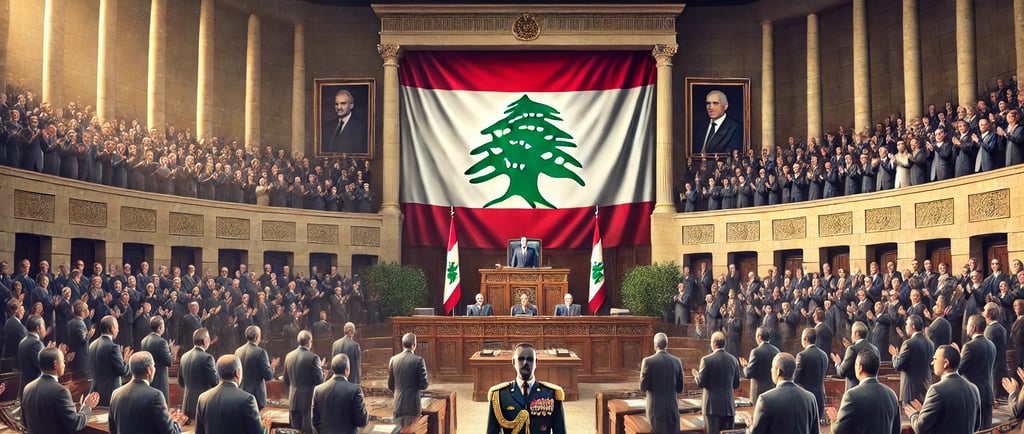Lebanon Elects New President: A Path Forward for the Nation
Lebanon Welcomes a New Era of Leadership. In a historic decision, Lebanon's Parliament has elected General Joseph Aoun as the new president, ending a prolonged political stalemate. Aoun's leadership brings renewed hope for stability and progress during one of the nation's most challenging periods.
POLITICS


Introduction to the Political Landscape
Lebanon has recently witnessed a significant shift in its political landscape with the election of Army Chief Joseph Aoun as the new president. Lebanon's Parliament has elected General Joseph Aoun as the new president, concluding a two-year leadership vacancy. Aoun, who has led the Lebanese Armed Forces since 2017, secured 99 out of 128 votes in the second round of parliamentary voting. This election marks the end of a prolonged political impasse that has hampered the nation's governance for an extended period. Amidst a severe financial crisis that has gripped the nation, Aoun's election is being viewed as a hopeful step toward addressing the myriad challenges confronted by Lebanon.
An Overview of Joseph Aoun’s Background
Joseph Aoun has served as the commander of the Lebanese Armed Forces and has a distinguished history of military service. His leadership capabilities and commitment to the nation have garnered respect among various factions within Lebanon. As president, Aoun brings a fresh perspective and a strong mandate to navigate the complex terrain of Lebanese politics. His background in the military is expected to play a pivotal role in maintaining stability and fostering a sense of security within the country.
The Implications of Aoun's Election
The election of Joseph Aoun is generally viewed as a positive development amidst Lebanon's ongoing financial turmoil. Over the past few years, the country has faced unprecedented economic hardships, including skyrocketing inflation, depreciation of the national currency, and a significant rise in unemployment. Aoun’s presidency is anticipated to initiate necessary reforms aimed at stabilizing the economy and restoring public trust in governmental institutions.
Furthermore, Aoun’s election has the potential to unify various political factions that have been at odds. By bridging divides and facilitating cooperative governance, his leadership could lead to more constructive dialogues focused on critical issues affecting the Lebanese populace. The hope is that, under Aoun’s stewardship, Lebanon can efficiently address and alleviate the acute socio-economic distress that has become pervasive over recent years.
International reactions to Aoun's election have been cautiously optimistic, signaling potential support from the global community to assist Lebanon in its recovery efforts. The emphasis is on the necessity of implementing effective governance and the establishment of tangible fiscal policies to address the financial crisis, which remains a critical focal point for both local and international stakeholders.
In conclusion, Joseph Aoun's election as Lebanon’s new president signifies more than just a change in leadership; it heralds an opportunity for renewed hope and stability in a nation that has suffered from protracted difficulties. While challenges remain formidable, Aoun's presidency is seen as a critical moment for Lebanon, with the potential to steer the country toward a more promising future.
